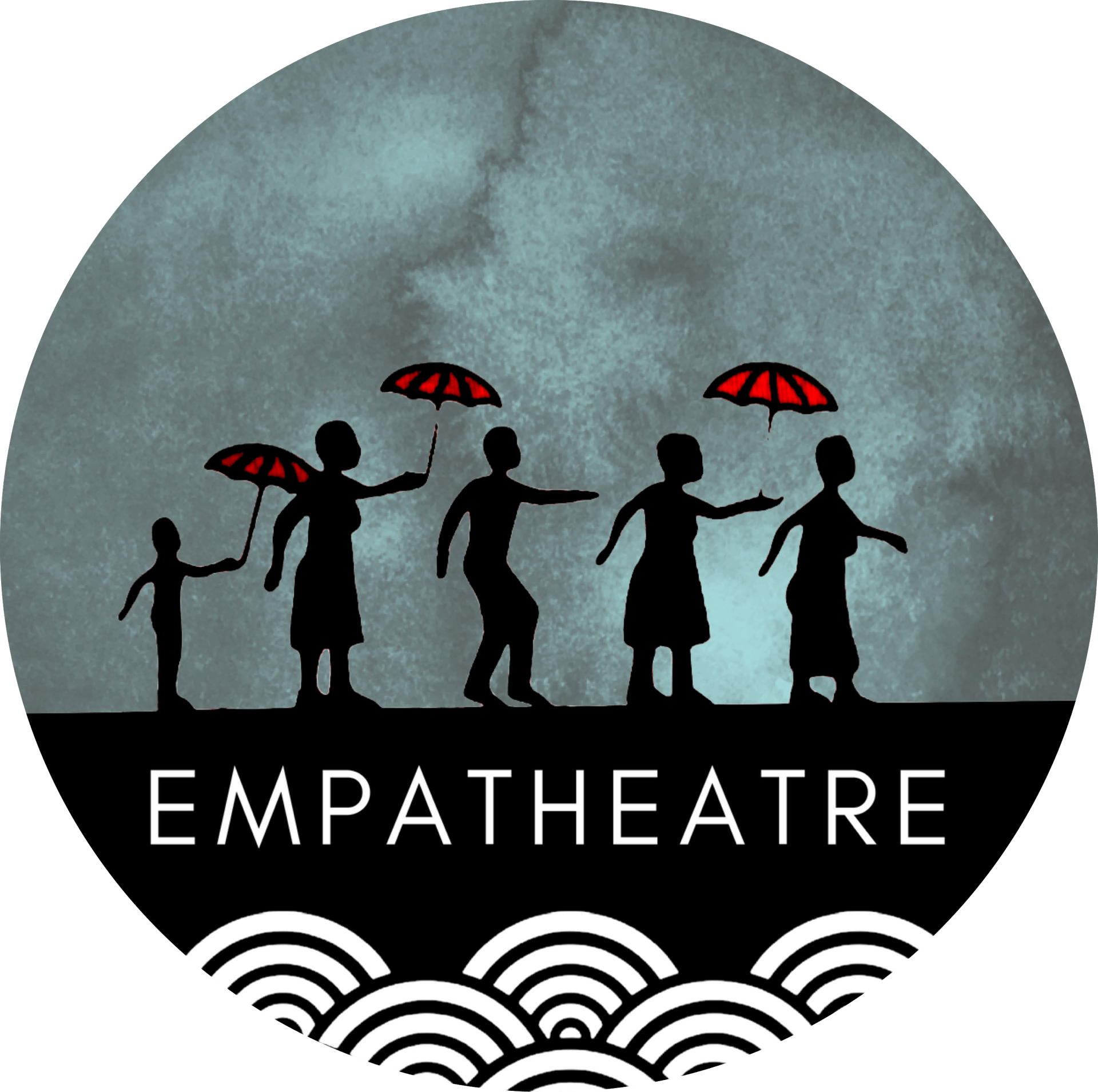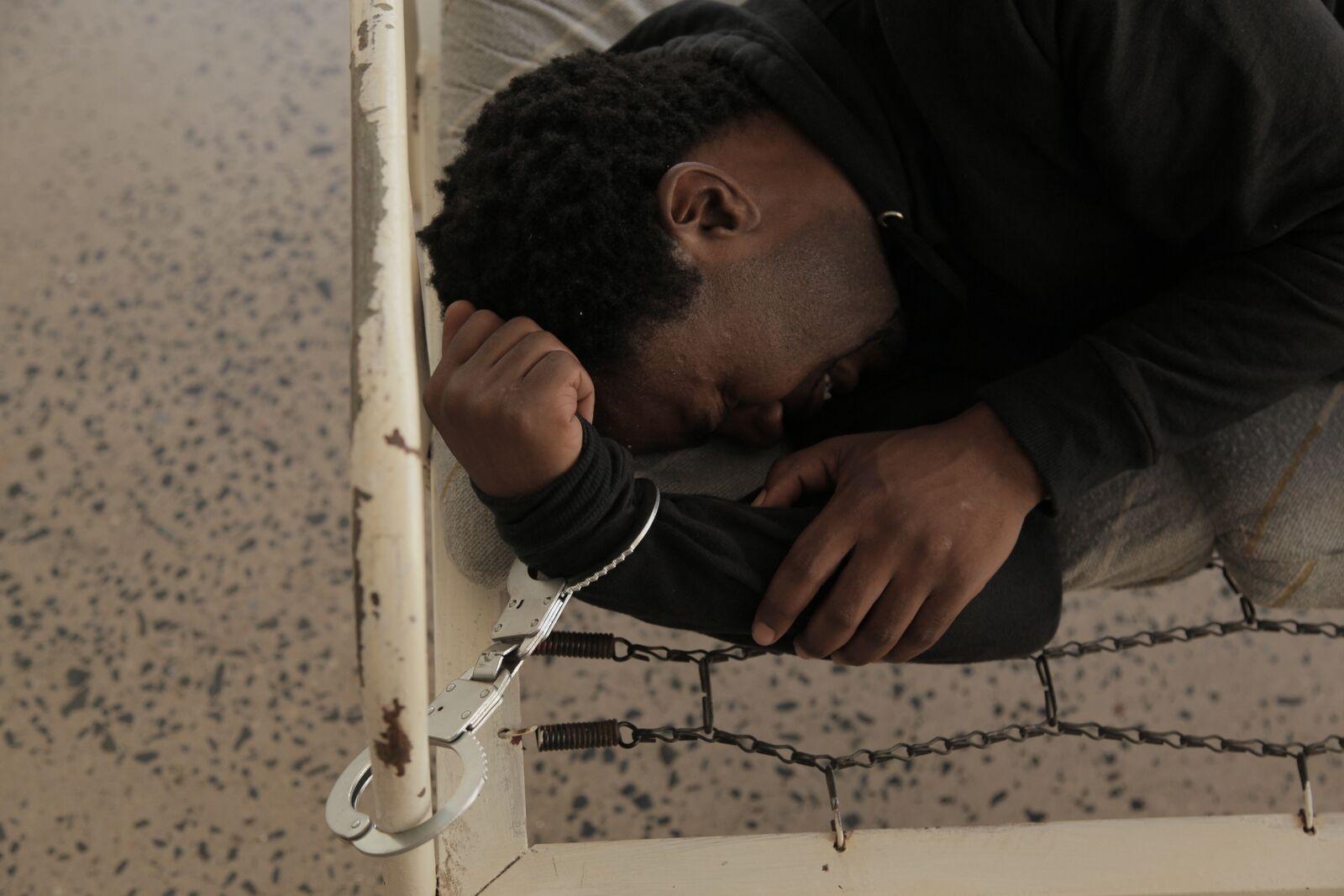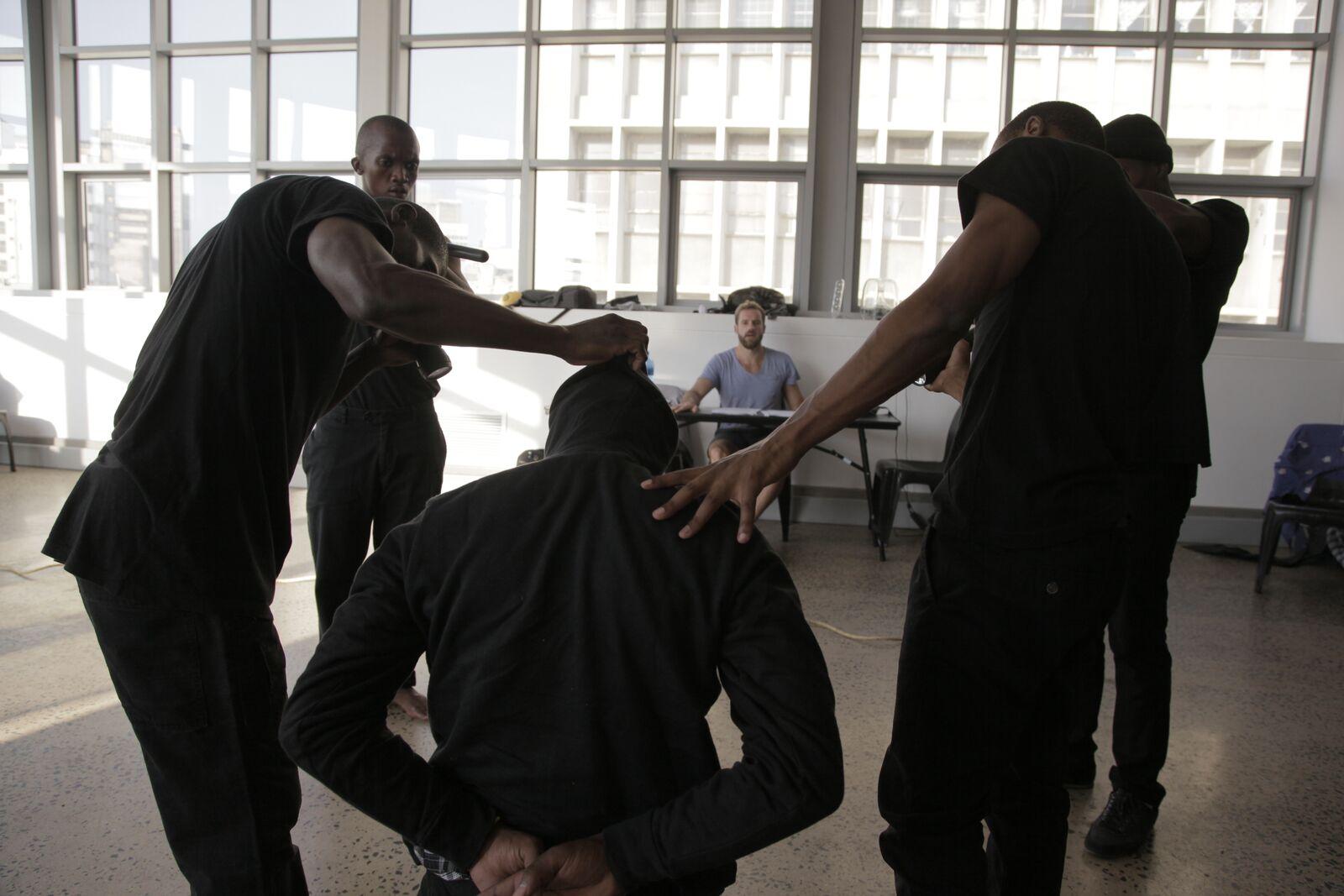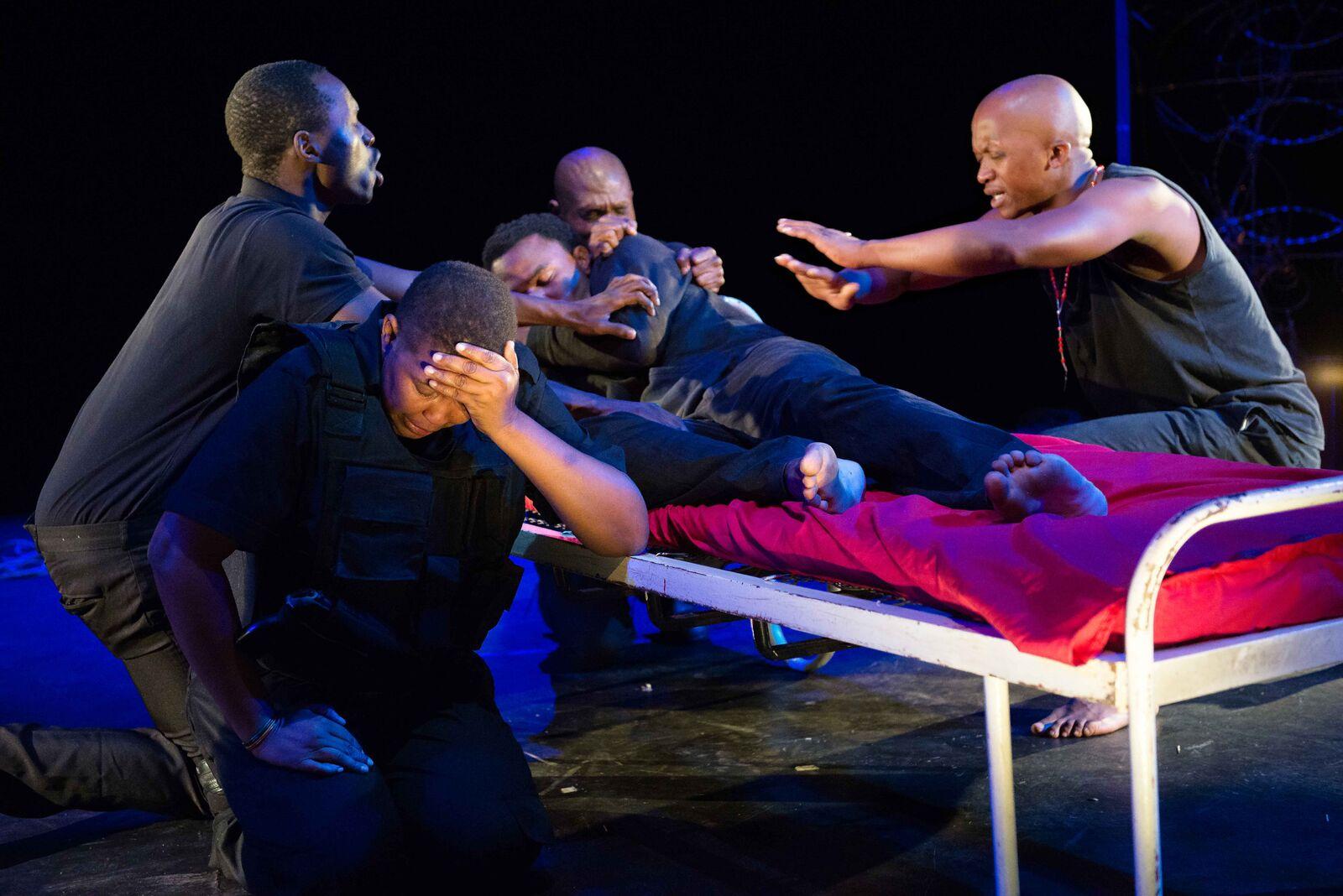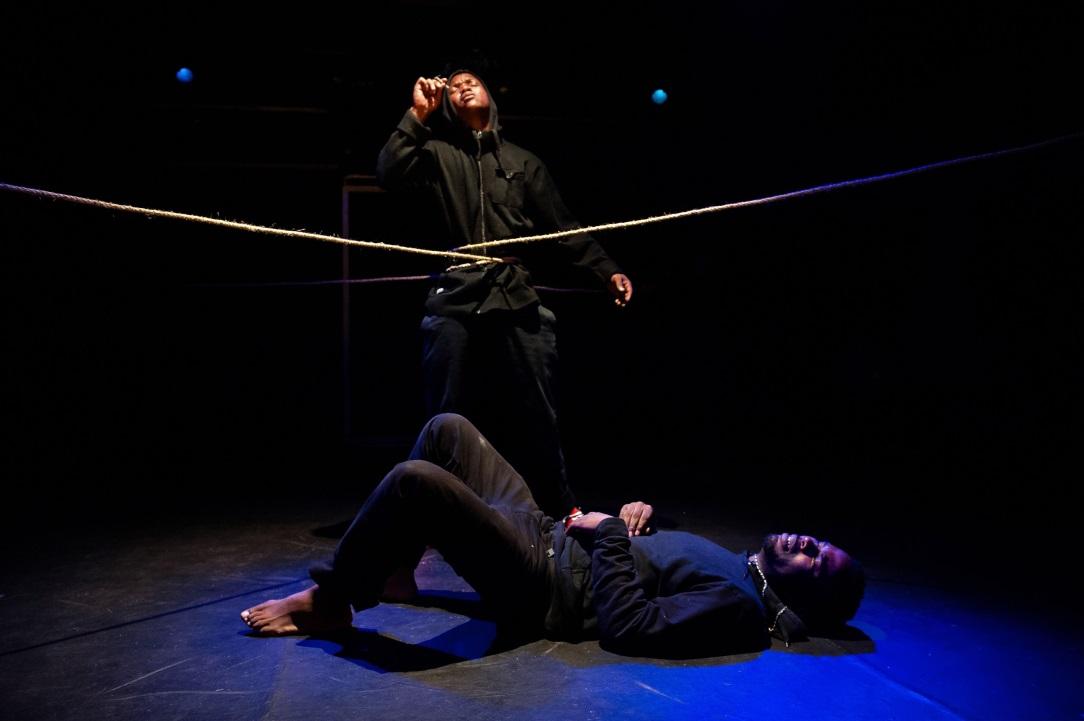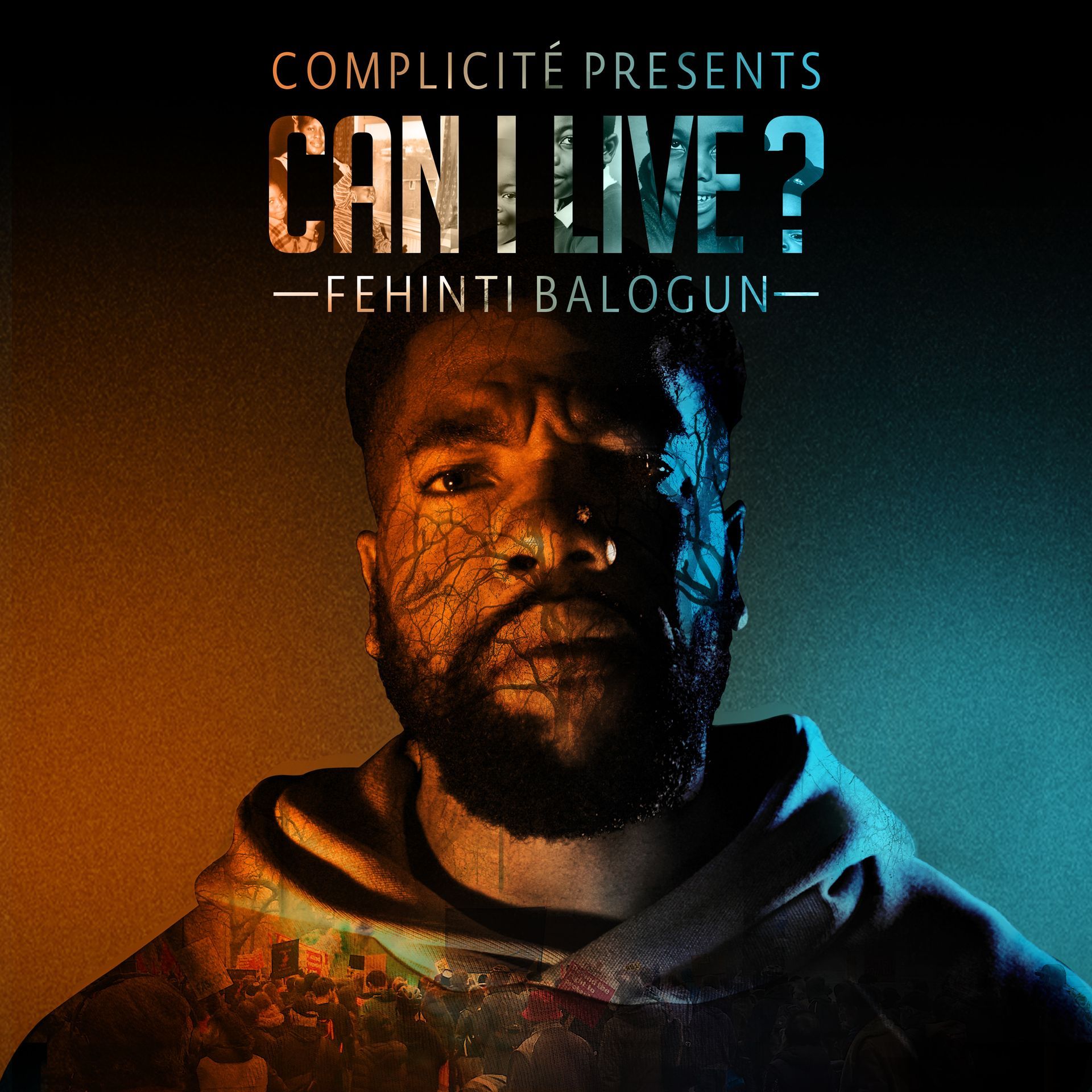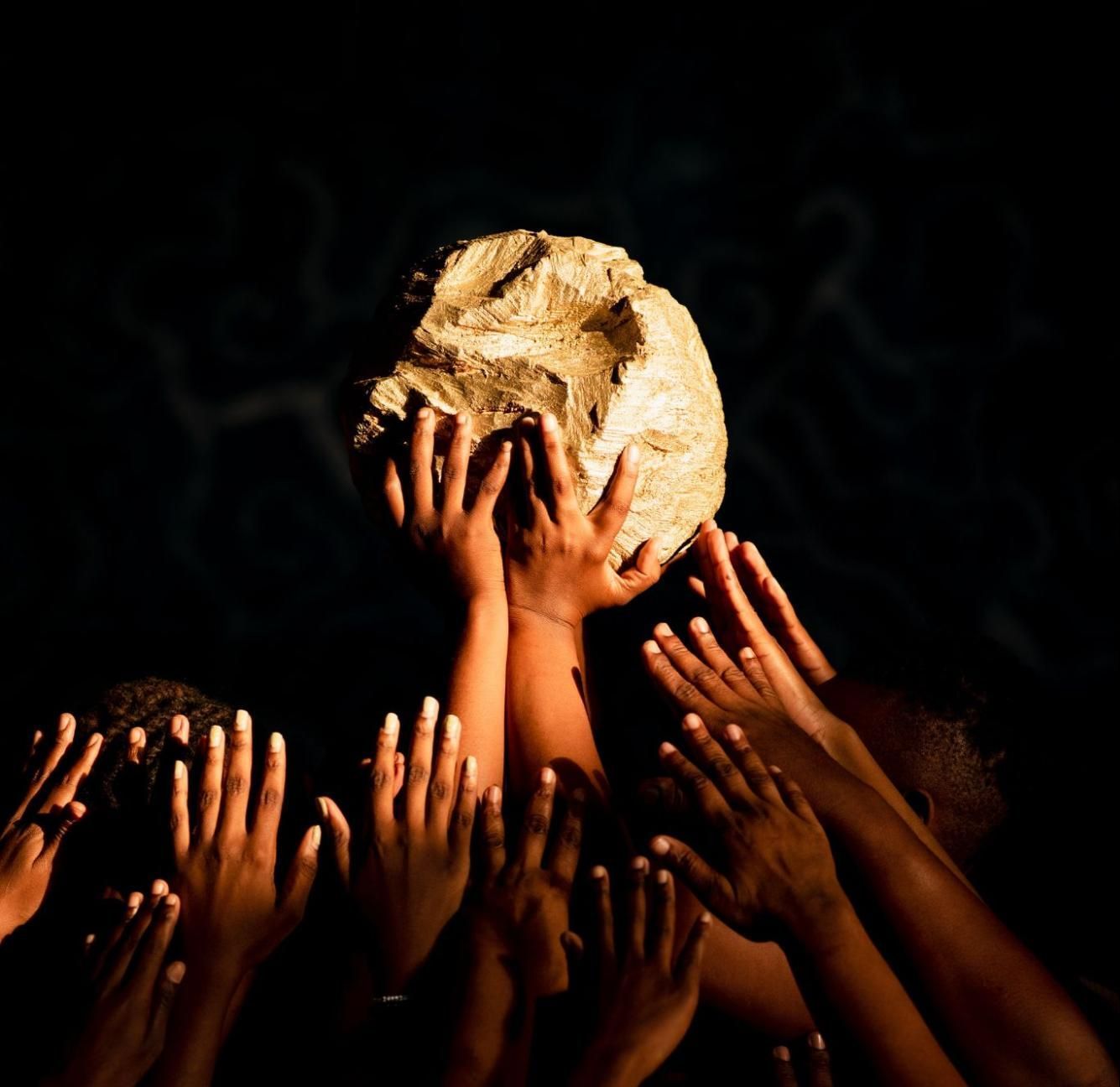Making sense of drug use: The power of Ulwembu by Prof. Monique Marks
MAKING SENSE OF DRUG USE: THE POWER OF ULWEMBU By Monique MarksBy Monique Marks
The following text was published as a foreword in the Ulwembu play text by Wits University Press.
Click here to purchase a copy
New Paragraph
I have never been directly involved in the creative arts. I have, throughout my life, lacked the confidence to view myself as a creative person, although I have come to realise that every person has the capacity to be creative. Not all of us, however, have the skills, talent and knowledge to be able to pull together a powerful production that rivets audiences and assists in making sense of very complex problems.
My personal inadequacies in regard to the creative arts were, in some ways, reinforced, as I became part of, then watched in absolute awe, the production of Ulwembu by the Big Brotherhood community theatre group. This highly skilled group of actors, directed by Neil Coppen and Dylan McGarry, brought to a number of stages (formal and informal) in both KwaZulu-Natal and Gauteng, a theatre production that will not be forgotten by any person who watched it.
Ulwembu, which focuses on the various spider webs tangled in the world of street-level drug use, is, without doubt, a powerful and deeply researched presentation on the pathways into and out of problematic drug use. The play is situated in Durban, where smoking brown heroin mixed with a number of other (often toxic) compounds has become alarmingly widespread. Whoonga – the street name given to this heroin-based compound – is ubiquitous in Durban and in other parts of the country.
Immediately after using Whoonga there is a sense of sedation and hypnotic calm, the withdrawal symptoms related to stopping (or attempting to stop) using are nothing short of horrendous. Nightmares, tremors, sweats, intense head and stomach pain, as well as heightened anxiety, all accompany withdrawal and act as a strong deterrent from abstaining or even reducing use. This horror is brilliantly portrayed in the play, providing the viewer and the reader with critical information about why ‘just stopping’ is an option that is unlikely to work.
But Ulwembu teaches us far more about street-level drug use. Arising out of Big Brotherhood’s intensive research, in dialogue with academic scholars, is an intricate map of the many possible factors that give rise to problematic drug use, to being involved in dealing in drugs, to the impact of drug use on families and communities and to the various options that (ideally) exist to reduce the harm associated with drug use. As a theatrical production Ulwembu provides a platform for exploring the vexing emotions and circles of blame that surround the use of drugs, particularly at street level.
The production is underpinned by two important sensibilities. The first is ‘the more we see drugs, the more we see people’. This means that in the production people for whom drugs have a primary salience are not dispensable non-humans. On the contrary, as the play so brilliantly demonstrates, they are people who have experienced some form of disconnect or trauma in their lives and the drugs are a solution that blunts these feelings. They are thinking, feeling beings who should be awarded the same basic human rights as any other person, including the right to privacy, health care and dignity.
The second sensibility is that coming down hard on people who use drugs – particularly those from low-income backgrounds – does more harm than good. Users become increasingly stigmatised, traumatised and marginalised when a heavy-handed law enforcement approach is used, usually as the first line of action.
Criminal records make finding ‘decent’ work incredibly difficult and so, as the play brilliantly shows, users become dealers. And dealers, contrary to popular belief, are often not just the ‘bad guys’. In some cases they are the only people who are able to hear and make sense of the daily struggles of those who have a drug-use disorder. But beyond this, they are, equally, trying to forge a meaningful life for themselves that generates an income, which often benefits extended family members.
What is needed instead is compassion and an understanding of what pathways are or should be available to those with a drug-use disorder who are keen to normalise their lives and recover from the harmful impact of dependent drug use. We need to take collective responsibility for making sense of problematic drug use and finding solutions that are based on positive personal experiences and on international evidence of best practice harm reduction.
The dialogues and monologues that make Ulwembu facilitate deliberation among and between a wide range of social groupings, including people who use drugs, family members, religious leaders, police, government officials, policy-makers and civil society. The dialogue between the actors and the audience, together with the visual representations of real-life characters caught up in the web of drug use, provide insights that generate empathetic responses rather than moralistic and judgemental ones.
The research that constituted the foundation of Ulwembu, as well as its performance, and the engagement that resulted from this, directly influenced the establishment of South Africa’s first Opioid Substitution Therapy (OST) Demonstration Project, which is located in Durban. The OST Project staff attended the play, which reinforced the empathetic approach that has been built into the project from its inception.
In each of the 50 beneficiaries of the OST Project is a voice that resonates with the characters in the play. The voice given in Ulwembu to people who use drugs has played a very important role in advocating for harm-reduction interventions in South Africa, including OST.
As a scholar and a public intellectual I found working closely with Ulwembu’s producers, directors and actors a truly remarkable experience. Despite having researched drug use in the field I was unable to unearth the nuances and deep emotive underpinnings of all those entangled in the world of whoonga use.
The Big Brotherhood actors had a remarkable capacity to reach into the lives of the characters they represent in the production – the users, the police, the dealers, community members and social workers. It was not surprising, therefore, that acting out the stories they had revealed took a massive emotional toll. In turn, the emotions that were so evident on the stage, and the empathetic way in which each character was depicted, left an indelible mark on my own psyche and on my understanding of how best to research both the everyday and the extraordinary.
Equally important, at a personal level I have come to realise that I can play a role in the creative world and that it is imperative to collaborate with creative artists in making sense of and bringing to the fore narratives and solutions that resonate deeply with our humanity and our need to fix ‘wicked’ problems.
Monique Marks
Professor and Head of the Urban Futures Centre at the Durban University of Technology January 2018
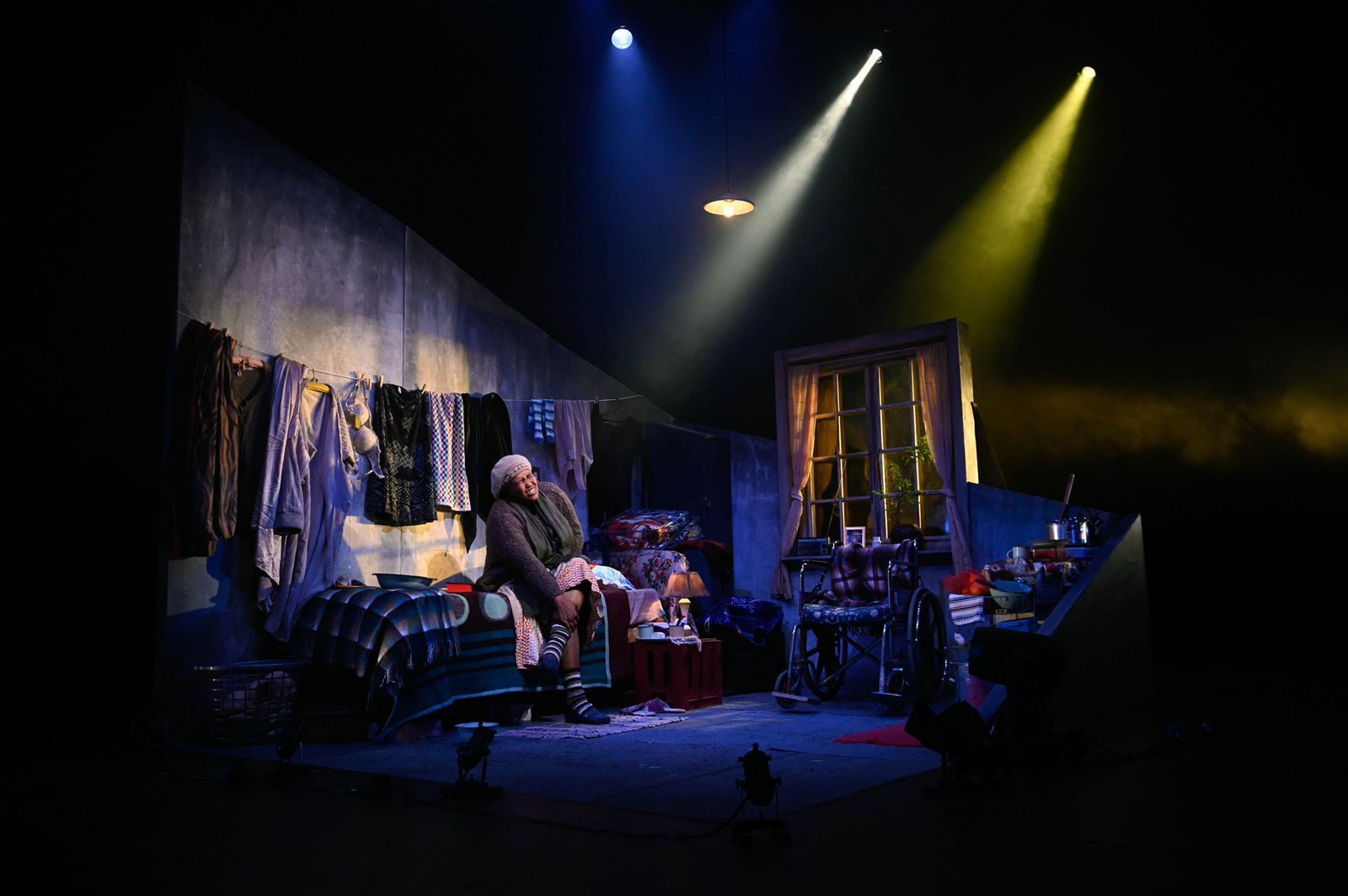
How do we make sense of the violent histories that mark our past? This play, Isidlamlilo, forces us to engage seriously with this question. Depending on your own relationship with our violent history, this play awakens a profound and at times unsettling realization that history is a living breathing force in all our lives. Isidlamlilo is set in the dying days of Apartheid, and in the present democratic South Africa.
